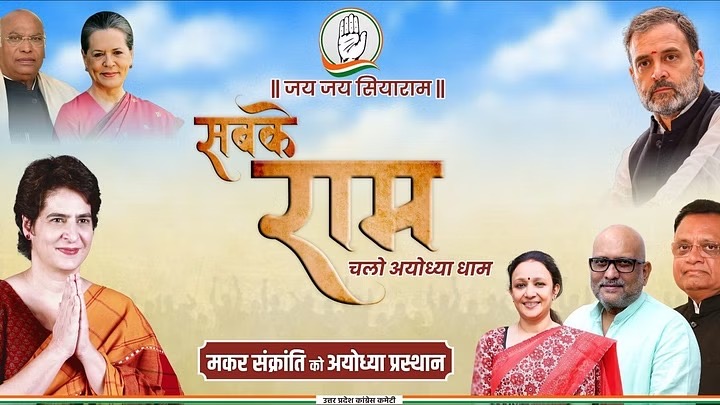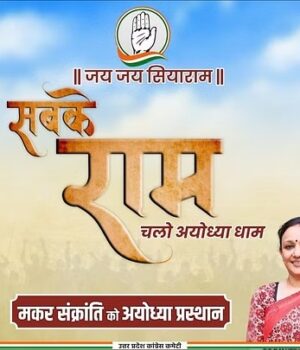In a noteworthy development, Congress leaders find themselves at a crossroads as some members of the party, led by UP Congress chief Ajay Rai, actively observe the ongoing Ram temple consecration ceremony in Ayodhya on January 15. Despite the Congress party’s official stance of rejecting the invitation for the upcoming ceremony on January 22, a significant number of its leaders have chosen to participate in the event.


While Congress President Mallikarjun Kharge, former leader Sonia Gandhi, and Lok Sabha floor leader Adhir Ranjan Chowdhury have opted to abstain from attending the ceremony, citing it as an “RSS/BJP event,” several party members seem to be breaking away from the official party line.
The Congress party, in a statement, clarified its position on the event, terming it as a “RSS/BJP event” and emphasizing the personal nature of religious beliefs. The statement highlighted the perceived political nature of the Ayodhya temple project by the RSS/BJP, expressing reservations about the timing of the inauguration, which it believes has been strategically advanced for electoral gains.
Despite the party’s refusal of the invitation, a sizeable delegation led by Ajay Rai made its way to Ayodhya on January 15, indicating a disparity within the Congress ranks regarding participation in the significant religious event. The divided stance reflects the internal dynamics and differing opinions within the party regarding the Ram temple consecration.
As the ceremony on January 22 approaches, the Congress party remains in the spotlight not only for its official rejection of the invitation but also for the visible contradiction as some of its leaders actively engage in observing the ongoing events in Ayodhya. The dichotomy raises questions about the party’s unified approach on matters of cultural and religious significance, hinting at potential internal debates that may unfold in the aftermath of the divisive decision by its leaders.










